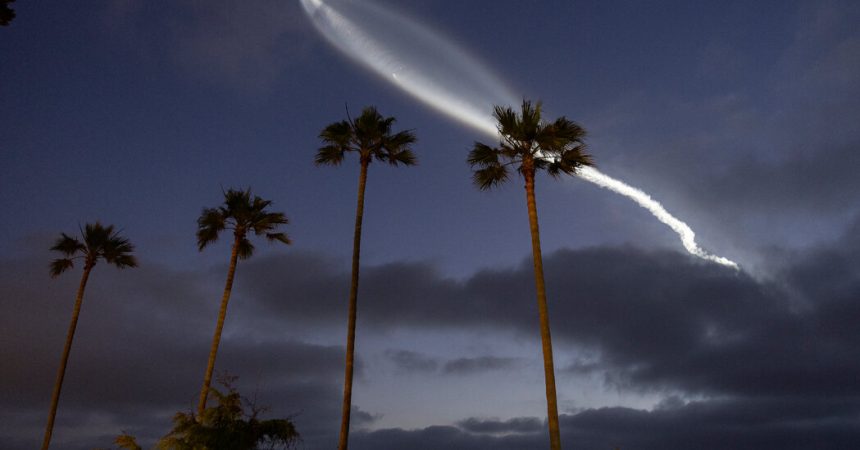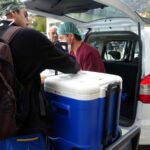A California state commission this week rejected the U.S. Space Force’s bid to increase the number of SpaceX rocket launches on the state’s central coast, citing concerns about the environmental impacts of the launches.
The Space Force had sought to increase the number of launches of SpaceX’s flagship Falcon 9 rocket from 36 to 50 per year out of California. But on Thursday, the California Coastal Commission denied the bid in a 6-4 vote, pointing to its previous requests for the military and SpaceX to mitigate the disruptive sonic booms caused by the rockets and to keep a closer eye on the operations’ effects on the state’s wildlife.
The commission also rejected the military and SpaceX’s argument that the launches should be considered a federal activity, saying they mostly benefit SpaceX and its private business operations, as opposed to the government.
The move came just a couple of months after the commission had approved increasing the number of SpaceX launches to 36, contingent on the military’s commitment to adopting such measures. The board, which is tasked with protecting the state’s coastal resources, previously expressed its reservation for approving more launches without understanding the effects of the sonic booms and launch debris on wildlife.
SpaceX, which is owned by Elon Musk, has grown to dominate the space launch business, serving as the primary provider to both NASA and the Pentagon. It has blasted its own commercial satellites into space out of bases across the country at a rapid clip, and it is set to test its new Starship rocket on Sunday in Texas. In California, SpaceX carries out many of its missions at the Vandenberg Space Force Base in Santa Barbara County, sometimes for the Space Force.
But the sonic booms have been startling residents in Southern California, whose homes have been shaken by powerful, confusing jolts, The Los Angeles Times reported. And several environmental groups submitted letters urging the commission to take more time to study the impact on wildlife ahead of this week’s meeting.
The New York Times










